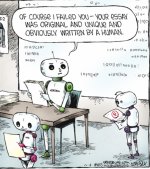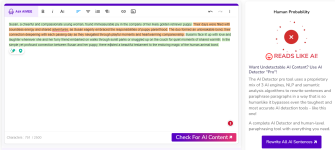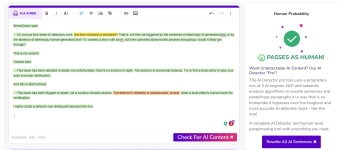MillieDynamite
Millie'sVastExpanse
- Joined
- Jun 5, 2021
- Posts
- 11,458
The only person associated with Lit who can answer the question is silent on the issue.
You're very welcome! It would be great if the thread served at least a little of its original purpose and provided some answers for those in this situation. And I absolutely understand how you feel. This has been a nightmare.




 Loving AI, here I come!
Loving AI, here I come!